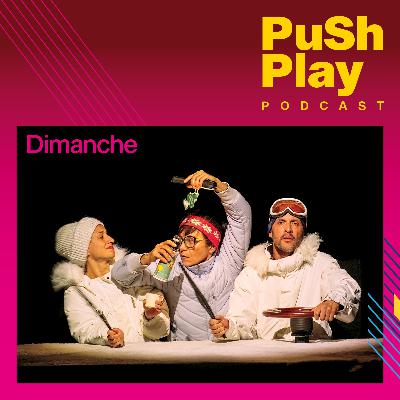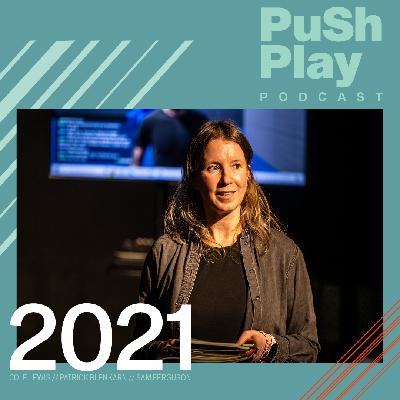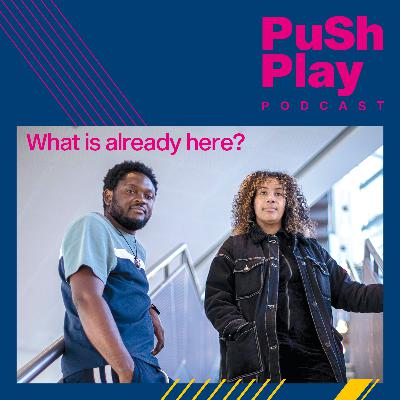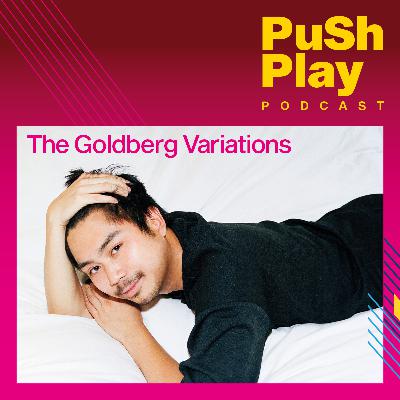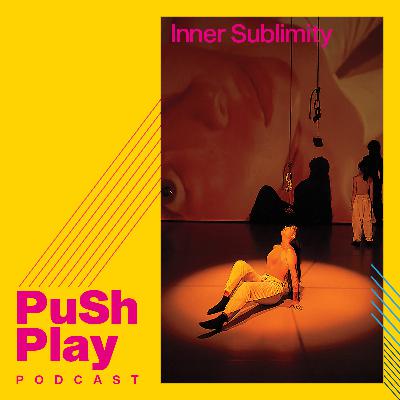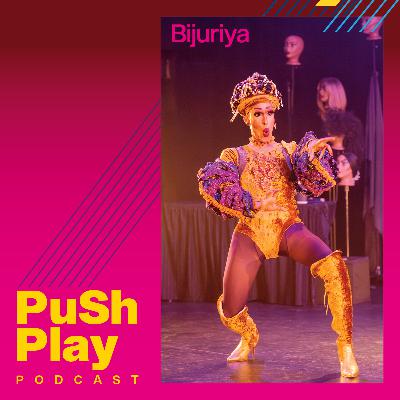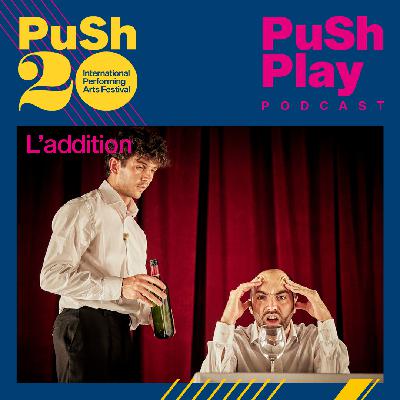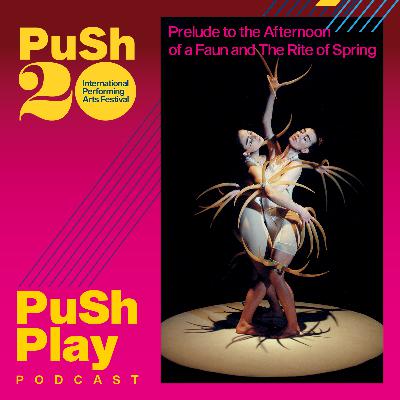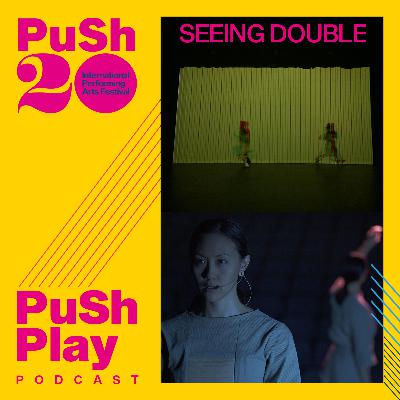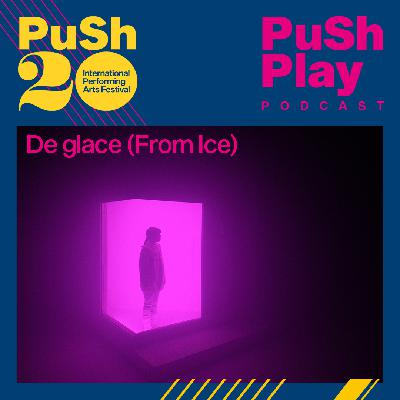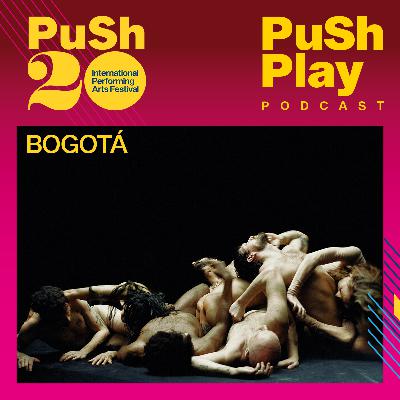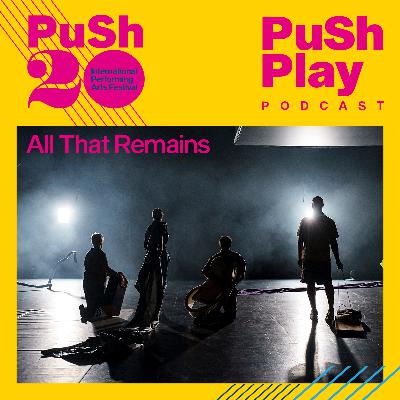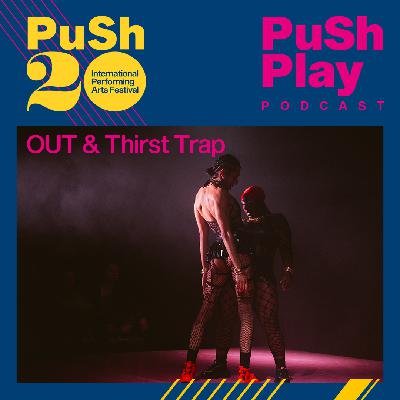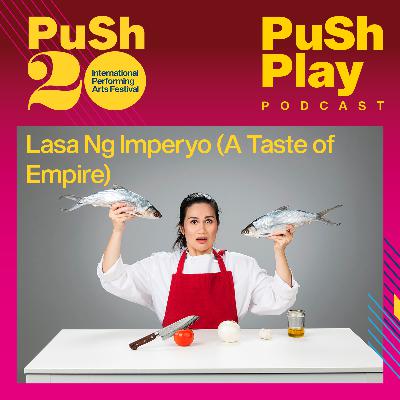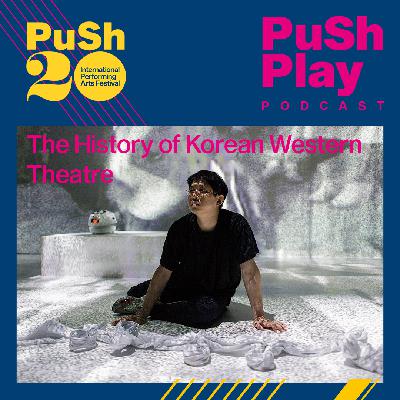Ep. 52 - From the Ordinary to the Universal (Dimanche)
Description
Gabrielle Martin chats with Julie Tenret of Focus and Sandrine Heyraud of Chaliwaté about their show Dimanche, which will be presented at the 2025 PuSh International Performing Arts Festival. Dimanche will be presented with our friends at the Cultch on February 6, 7 and 8 at the Vancouver Playhouse, supported by Vancouver Civic Theatres.
Show Notes
Gabrielle, Julie and Sandrine discuss:
-
How do you address something with extreme clarity but also appeal to a broad audience?
-
How do you tackle the theme of climate change and denial?
-
Why is it important to show our vulnerability, fragility and smallness in nature? How do you achieve this?
-
What do you mean by the work being "artisanal"?
-
How do you mix physical and object theatre?
-
How does humour as well as emotional distance fit into the work?
-
How would you describe the journey of your two companies coming together? Have your different techniques stayed separate or been blended together?
-
Is the storyboarding process typical for you?
-
How have your artistic practices evolved since both companies were founded in 2009?
-
What can you tell us about your new project?
About Dimanche
The Companies Focus (created by Julie Tenret) and Chaliwaté (consisting of Sandrine Heyraud and Sicaire Durieux) gathered around the collective writing of Dimanche. For a long time, the two companies had been following and appreciating the work of the other. It became apparent that they had a similar approach, a shared taste for unusual, visual, artisanal and poetic forms of theatre. The three artists decided to pool their talents to create a new form of writing combining gestural theatre, object theatre, puppetry, acting and video. This project is a continuation of their respective research. Since 2016, they have worked meticulously to create a unique, visual and poetic language that draws its inspiration from everyday life, the intimate, the "infra-ordinary", to tap into the universal.
Land Acknowledgement
This conversation was recorded on the unceded, stolen and ancestral territories of the Coast Salish Peoples: the xʷməθkʷəy̓əm (Musqueam), Skwxwú7mesh (Squamish) and Səl̓ílwətaɬ (Tsleil-Waututh), colonially known as Vancouver.
Bettina joined the conversation from Brussels, Belgium.
It is our duty to establish right relations with the people on whose territories we live and work, and with the land itself.
Credits
PuSh Play is produced by Ben Charland and Tricia Knowles. Original music by Joseph Hirabayashi.
Show Transcript
Hello and welcome to Push Play, a Push Festival podcast featuring conversations with artists who are pushing boundaries and playing with form. I'm Gabrielle Martin, Push's Director of Programming, and today's episode highlights an artisanal approach to connect with humanity.
I'm speaking with Julie Teneré and Sandrine Heroux, two of the lead artists behind Dimanche, which is being presented at the Push Festival February 6th to 8th, 2025. Between dreamlike fiction and stark reality, Dimanche paints a sharp yet tender portrait of humanity caught off guard by devastating natural disasters.
It depicts the ingenuity and stubbornness of humans as they cling to habits amid ecological collapse, asking how much longer can we ignore the storm at our door. Directed by Julie Teneré, who graduated from INSAS, the company Focus, from Brussels, creates shows combining theater of objects, puppets, actors, and video.
The scenic language she proposes is essentially visual, metaphorical, poetic, artisanal, and very close to a cinematographic writing. Trained in the gestural arts, Siqueur Duryu and Sandrine Heroux created Chaluaté Company in 2005.
Based in Brussels, they defend a visual language without words, poetic, physical, and artisanal, mixing gestural theater, object theater, circus, and dance. Here is my conversation with Julie and Sandrine.
I would like to acknowledge that I'm joining the conversation from the stolen ancestral and traditional territories of the Coast Salish peoples, so the Musqueam, Squamish, and Tsleil-Waututh. I'm a settler on these lands, and part of my responsibility as a settler is to continue to educate myself on settler colonialism and the indigenous fight for sovereignty.
It's not just an indigenous fight, but foreign. indigenous sovereignty over these lands. And so I reference it often, the Yellowhead Institute has this really great, many great reports, including the red paper, which looks at how indigenous consent is ignored, coerced, negotiated, or enforced in Canada with regard to land.
And I'm just gonna share a little excerpt from this red paper. We analyze how the land tenure regime in Canada is structured upon the denial of indigenous jurisdiction through the creation and enforcement of legal fictions.
This is followed by limited recognition, which includes an evolving notion of the duty to consult and corresponding government and industry responses. So today, while states are encouraged to adopt the principle of free prior informed consent at the international level, in the Canadian context since 2007, when the UN's Declaration on the Rights of Indigenous Peoples was first presented, There has been state opposition to a fulsome implementation of free prior and informed consent.
And I just really appreciate the clarity of this document and the other Yellowhead documents and what an incredible educational tool it is for myself and I know for others. Julie and Sandrine, where are you joining this conversation from today?
From Brussels, in Belgium. Great, thank you. And is that where both your companies have been based since they were founded? Yes, exactly. Even though we studied maybe in other countries, we started working really professionally in Brussels and in Belgium.
And soon I'm going to ask you about the history of your companies because they were both founded in 2009, so they have a beautiful history. But first I want to speak more specifically about kind of the themes of Dimanche.
So, Julie, you've described your work as aiming to deal with social issues, starting from the intimate, the infra-ordinary, to reach the universal. And this is clearly successful in Dimanche. You know, the climate catastrophe is a subject that there is surprisingly little theatre about considering the scale of impending change for humanity.
<span lang="EN-US

